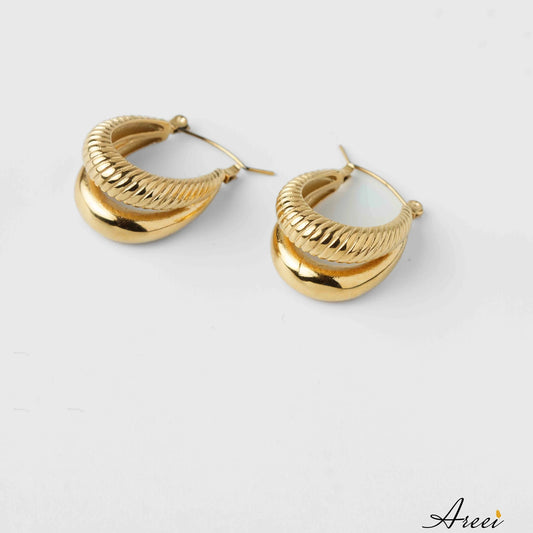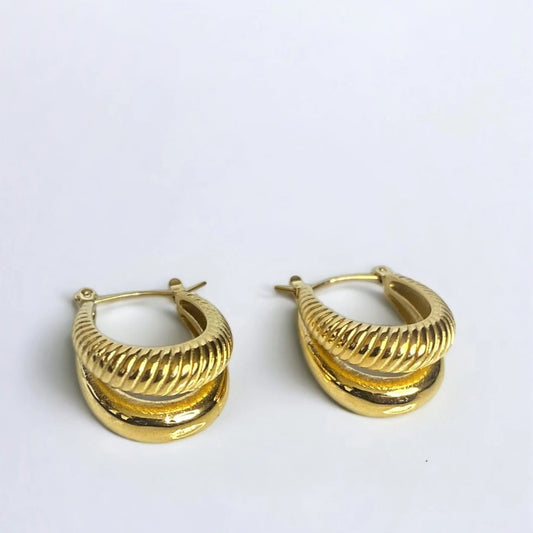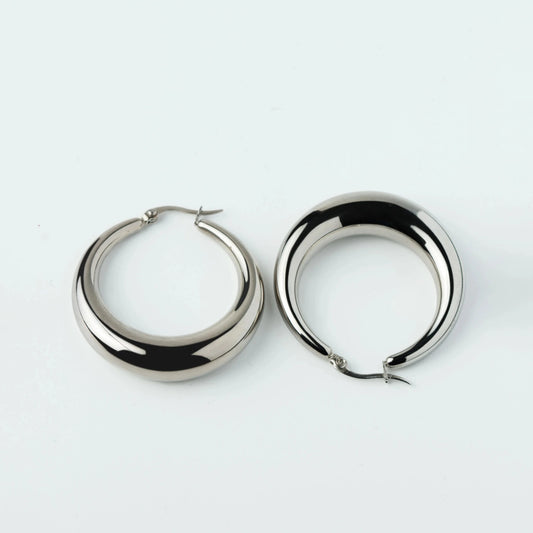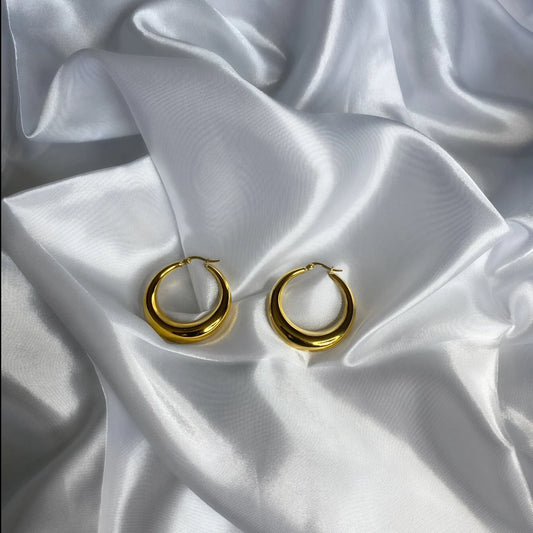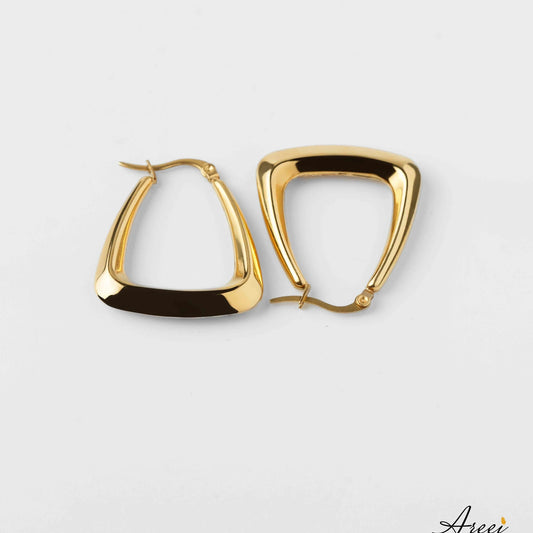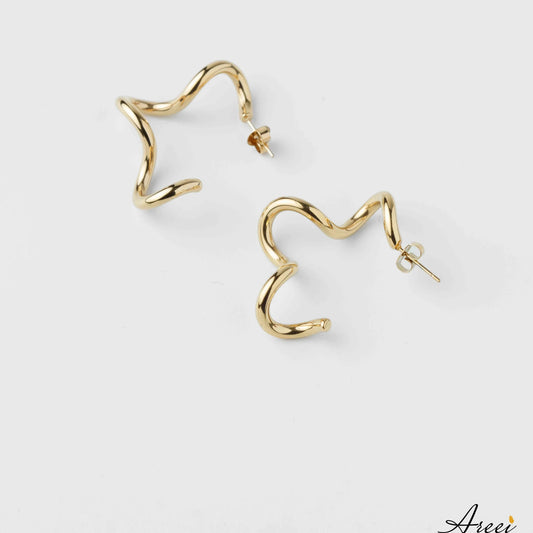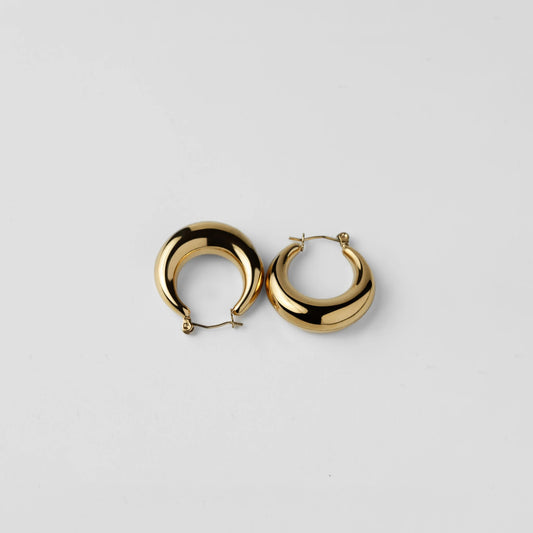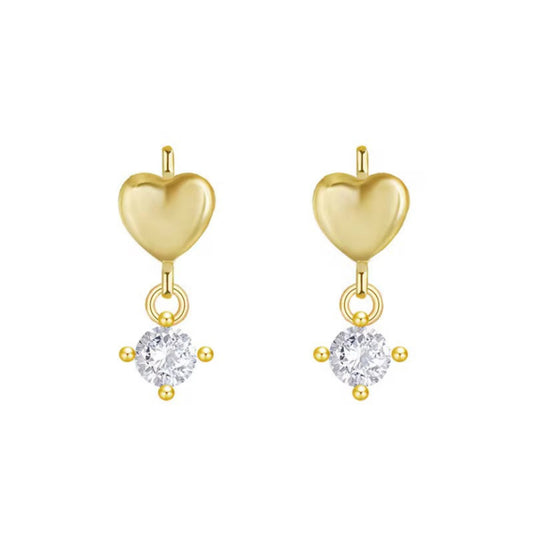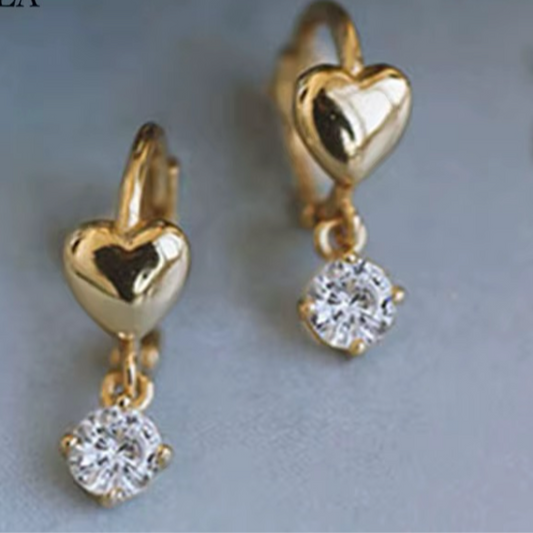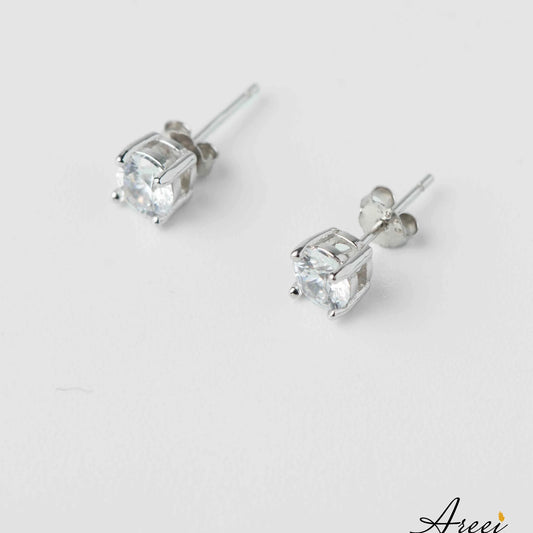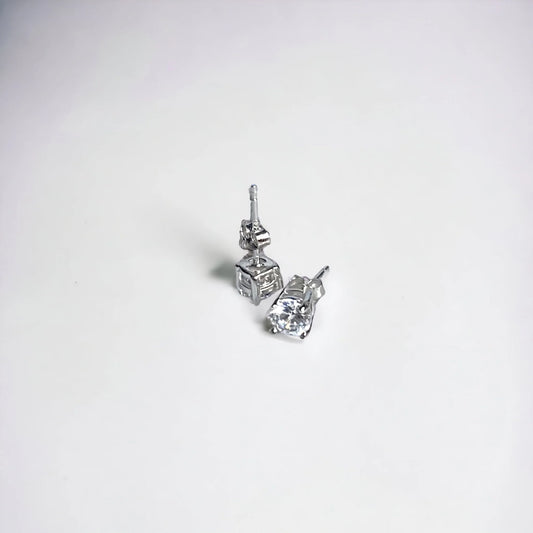Kiki Mini Hoop Earrings from Areei
Body piercings have become increasingly popular around the world, but with any piercing comes the risk of infection. Whether you've just got your ears pierced or have opted for a more adventurous body piercing, knowing how to recognise and treat piercing infections is essential for maintaining your health and ensuring proper healing.
What Is a Piercing Infection?
A piercing infection occurs when bacteria, viruses, or other microorganisms enter the piercing site and multiply, causing inflammation and other symptoms. Infections can develop at any time during the healing process, though they're most common in the first few weeks after getting pierced.
Recognising the Signs of an Infected Piercing
Early recognition of infection symptoms is crucial for prompt treatment. Watch out for these warning signs:
Common Symptoms:
- Persistent redness that worsens rather than improves
- Swelling that increases over time
- Warmth around the piercing site
- Throbbing or severe pain
- Yellow, green, or bloody discharge with an unpleasant odour
- Red streaks radiating from the piercing
- Fever or feeling generally unwell
Normal Healing vs. Infection: It's important to distinguish between normal healing and infection. Some redness, mild swelling, and clear discharge are normal during the initial healing period. However, if symptoms worsen after the first week or persist beyond the expected healing timeframe, infection may be present.
Tess Triangle Earrings from Areei
Immediate Steps to Take When You Suspect an Infection
If you notice signs of infection, don't panic. Taking prompt action can prevent complications and promote healing.
Do:
- Clean your hands thoroughly before touching the piercing
- Continue your regular piercing aftercare routine
- Apply a warm saline solution compress for 5-10 minutes, 2-3 times daily
- Take over-the-counter pain relief if needed (paracetamol or ibuprofen)
- Monitor symptoms closely
Don't:
- Remove the jewellery (this can trap infection inside)
- Use harsh chemicals like hydrogen peroxide or alcohol
- Touch or rotate the jewellery excessively
- Apply antibiotic ointments unless advised by a healthcare professional
- Ignore worsening symptoms
Home Treatment Methods
For mild infections caught early, several home remedies can be effective:
Saline Solution Compresses: Mix 1/4 teaspoon of sea salt with 250ml of warm distilled water. Soak a clean cloth in the solution and apply to the infected area for 5-10 minutes. This helps draw out infection and promotes healing.
Proper Cleaning Technique: Gently clean around the piercing twice daily with saline solution or a mild, fragrance-free soap. Avoid over-cleaning, as this can irritate the skin and delay healing.
Hot Water Soaks: For certain piercings (particularly ear piercings), soaking in warm water can help reduce inflammation and promote drainage of infected material.
When to Seek Professional Medical Help
Whilst mild infections may respond to home treatment, certain situations require immediate medical attention:
Seek urgent medical care if you experience:
- High fever (above 38.5°C)
- Red streaking from the piercing site
- Excessive swelling that affects function (such as difficulty swallowing with tongue piercings)
- Severe pain that doesn't respond to pain relief
- Pus-filled bumps or abscesses
- Signs of allergic reaction (widespread rash, difficulty breathing)
- Symptoms that worsen despite 2-3 days of home treatment
Classic Gold Hoop Earrings from Areei
Medical Treatment Options
Healthcare professionals may recommend various treatments depending on the severity of your infection:
Topical Antibiotics: For localised infections, antibiotic creams or ointments may be prescribed to apply directly to the affected area.
Oral Antibiotics: More serious infections typically require oral antibiotics. Common options include flucloxacillin or erythromycin. Always complete the full course as prescribed, even if symptoms improve.
Drainage Procedures: If an abscess has formed, a healthcare provider may need to drain it surgically to remove infected material and promote healing.
Jewellery Assessment: Medical professionals can determine whether the jewellery should be removed or replaced with a more suitable material.
Prevention: The Best Medicine
Preventing infection is always preferable to treating it. Follow these guidelines to minimise your risk:
Choose Reputable Piercers: Research piercing studios thoroughly. Look for:
- Proper licensing and health certificates
- Clean, professional environment
- Use of sterilised equipment
- High-quality jewellery materials (titanium, surgical steel, or gold)
Follow Aftercare Instructions: Proper aftercare is crucial for preventing infection. This typically includes:
- Cleaning twice daily with saline solution
- Avoiding swimming pools, hot tubs, and baths during initial healing
- Not changing jewellery too early
- Avoiding sleeping on fresh piercings when possible
Micro Diamond Stud Earrings from Areei
Special Considerations for Different Piercing Types
Different piercings carry varying infection risks and may require specific care:
Ear Piercings: Generally lower risk, but cartilage piercings take longer to heal and are more prone to complications than earlobe piercings.
Oral Piercings: Higher infection risk due to bacteria in the mouth. Require special oral hygiene measures and dietary modifications during healing.
Genital Piercings: Highest infection risk and require the most careful aftercare. Sexual activity should be avoided during initial healing.
Surface Piercings: More prone to rejection and migration, which can increase infection risk.
Long-term Care and Monitoring
Even after an infection clears, continue monitoring your piercing:
- Watch for recurring symptoms
- Maintain good hygiene practices
- Replace jewellery with high-quality materials
- Be aware that some people may be more prone to recurring infections
Complications of Untreated Infections
Ignoring a piercing infection can lead to serious complications:
- Spread of infection to surrounding tissues (cellulitis)
- Blood poisoning (sepsis)
- Permanent scarring or deformity
- Need for surgical intervention
- In rare cases, life-threatening complications
Key Takeaways
Piercing infections are common but treatable when caught early. The key is recognising symptoms promptly and taking appropriate action. Whilst many mild infections can be managed at home with proper care, don't hesitate to seek medical attention if symptoms worsen or persist.
Remember that prevention through proper piercing selection, quality aftercare, and good hygiene practices is your best defence against infection. If you're considering a new piercing, research reputable piercers in your area and commit to following their aftercare instructions diligently.
By staying informed and proactive about piercing care, you can enjoy your body art whilst minimising health risks. When in doubt about any piercing-related health concerns, consult with a healthcare professional for personalised advice.

